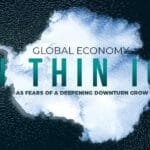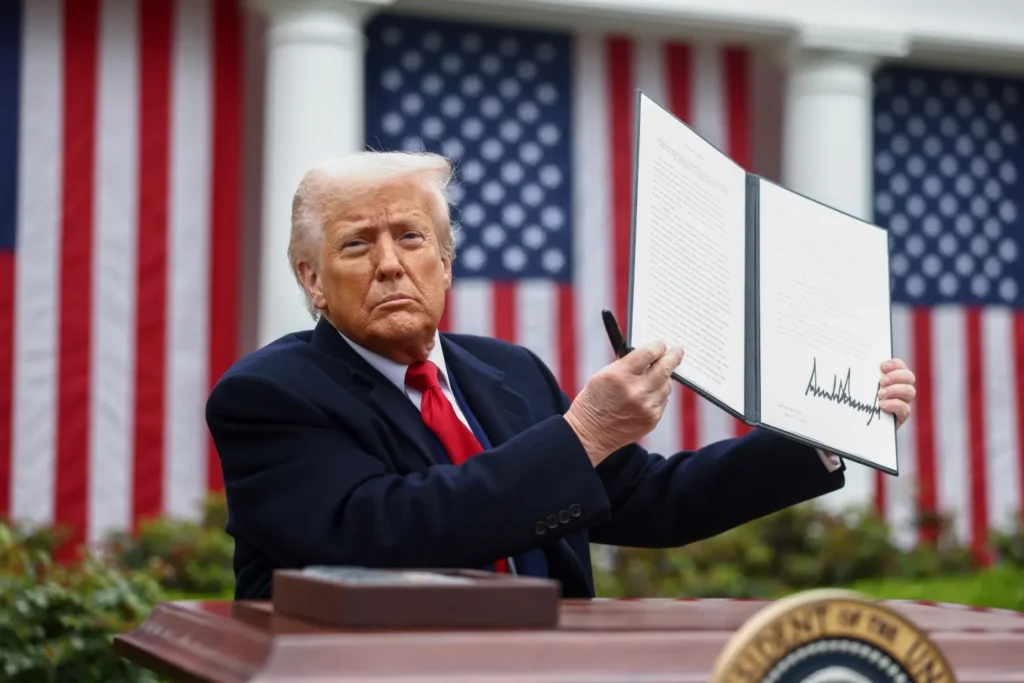In the illustrious setting of Sao Paulo’s Biennale Pavilion, where the visionary architecture of Oscar Niemeyer stands as a demonstration to Brazil’s boldness, the G20 convened. This gathering of finance ministers and central bank governors was not merely a routine event but a pivotal opportunity to shape the trajectory of the world economy. As the global outlook shows signs of improvement, the G20 has the chance to transition from crisis management to proactive, long-term planning.
Amidst the recent turbulence, there are glimmers of resilience in the global economy. Projections indicate a modest growth of 3.1 percent this year, accompanied by a decline in inflation and stable job markets. Such resilience provides a platform for the G20 to pivot towards addressing medium-term challenges. In a world where AI and technological advancements hold the promise of boosting productivity, it’s imperative for policymakers to seize this moment to foster sustainable and inclusive growth.
However, beneath the surface of this resilience lies a complex web of challenges. Emerging markets and developing economies, despite weathering successive shocks admirably, face the daunting task of bridging the gap with their advanced counterparts. The spectre of low global growth looms large, casting a shadow over aspirations for convergence. Moreover, the global economy is marred by geo-economic fragmentation, as countries reconfigure trade and capital flows, and climate risks escalate, exerting a profound impact on economic performance.
In this global dynamics, Brazil’s G20 agenda shines bright. With a focus on inclusion, sustainability, and global governance, Brazil’s ambitious agenda resonates with the aspirations of a world seeking equitable prosperity. Key issues such as eradicating poverty and hunger underscore the urgency of collective action in addressing the most pressing challenges of the time.
At the heart of the G20’s agenda lies a commitment to forging a path towards a more equitable and sustainable future. This necessitates not only bold policy measures but also a fundamental re-evaluation of existing frameworks. It requires reimagining global governance structures to ensure that they are inclusive and responsive to the needs of all nations, particularly the most vulnerable.
Central to this endeavour is the recognition of the interconnectedness of global challenges. Climate change, economic inequality, and geopolitical tensions are not isolated issues but facets of a broader systemic reality. Addressing one necessitates addressing them all, requiring a holistic and coordinated approach.
Finishing the Job on Inflation
Central bankers are rightfully prioritizing the task of returning inflation to target levels. This is particularly crucial for vulnerable demographics such as impoverished families and low-income nations, who bear the brunt of elevated prices.
However, the positive strides in curbing inflation bring to the forefront the nuanced consideration of when and to what extent to adjust interest rates, a decision that major central banks will need to approach with caution in the coming year.
While core inflation persists at elevated levels in numerous countries, and potential upward pressures on inflation persist, policymakers must vigilantly monitor the underlying inflation trends and exercise prudence in avoiding premature or excessive easing of monetary policy.
Nevertheless, in instances where inflation is clearly trending towards target levels, countries should ensure that interest rates are not maintained at elevated levels for an extended period. Brazil’s proactive and decisive response to inflationary pressures during the pandemic serves as a commendable illustration of how agile policymaking can yield favourable outcomes.
The Central Bank of Brazil sets a precedent by swiftly raising its policy rate in response to surging inflation, subsequently adjusting its policy stance as inflation moderated towards its target range.
Tackling Debt and Deficits
As inflation eases and economies demonstrate resilience, the imperative now shifts towards fortifying defences against potential future shocks, mitigating the escalation of public debt, and creating flexibility for new fiscal priorities. Delaying action risks necessitating more painful adjustments down the line. However, the effectiveness of tightening measures hinges on a judiciously paced approach.
Striking this delicate balance proves challenging, as heightened interest rates and debt-servicing obligations strain fiscal capacities, constraining the ability of nations to deliver essential services and invest in crucial sectors like human capital and infrastructure. Any endeavour to reduce debt and deficits must be underpinned by credible medium-term fiscal strategies, accompanied by measures to shield impoverished and marginalized households while safeguarding pivotal investments.
Moreover, nations must persist in advancing efforts to bolster revenue generation and streamline inefficiencies within their tax systems. Brazil sets a notable example with its landmark VAT reform, yet numerous countries lag behind, presenting opportunities to broaden tax bases, close loopholes, and enhance tax administration. Hence, the G20’s directive to launch a collaborative initiative with the World Bank aimed at enhancing domestic-resource mobilization underscores the pressing need for collective action in this regard.
Furthermore, fostering more inclusive and transparent tax frameworks is paramount, ensuring that the global tax architecture reflects the interests of developing nations. Concurrently, the ongoing engagements within the Global Sovereign Debt Roundtable aim to devise mechanisms for expediting and standardizing debt restructurings. While strides have been made through the G20 Common Framework, wherein agreements on debt treatment by official creditors have become more expedient, there remains a call for swifter enhancements to the global debt-restructuring infrastructure.
In essence, as economies pivot towards post-recovery phases, recalibrating fiscal policies to fortify resilience and promote sustainability emerges as a critical imperative. The path forward demands a delicate equilibrium between fiscal prudence and safeguarding essential societal needs, underscoring the pivotal role of collaborative initiatives and proactive measures in navigating the complex terrain of global fiscal management.
Growing the Economic Pie
In tandem with monetary and fiscal measures aimed at fortifying economic fundamentals, policymakers face an urgent imperative to address the underlying drivers of medium-term growth. Despite progress in some areas, many countries still grapple with formidable impediments to economic vitality.
In particular, emerging-market economies stand to benefit from reforms in governance, business regulation, and external sector policies, which have the potential to unlock significant productivity gains. However, this represents only one facet of the equation; economies must also position themselves to capitalize on structural trends that will shape the trajectory of global growth in the coming decades.
A prime example of such a structural force is the burgeoning climate economy. While some countries and regions stand to reap rewards in the form of job creation, innovation, and investment, for those heavily reliant on fossil fuels, the transition may pose considerable challenges. The critical question becomes how to maximize opportunities while mitigating risks effectively.

Implementing policies that internalize environmental costs, such as carbon pricing, can furnish incentives for transitioning towards low-carbon investments and consumption patterns. IMF research underscores that nations taking proactive measures on climate change not only spur green innovation but also attract inflows of low-carbon technology and investment, thereby catalyzing sustainable growth trajectories.
Additionally, levying taxes on the most polluting forms of international transportation presents an avenue for generating revenues earmarked for combating climate change, addressing hunger, and supporting vulnerable segments of society.
Nevertheless, for many vulnerable countries, robust growth alone may not suffice to unlock their full potential, necessitating external support in both financial and technical realms. This underscores the significance of an international architecture capable of adapting to the evolving dynamics of the global economy.
A Stronger International System
Recent military conflicts have starkly illustrated the growing polarization of the world. These tensions are fracturing the global economy along geopolitical fault lines, with approximately 3,000 trade-restrictive measures implemented in 2023, nearly tripling the number recorded in 2019. It’s evident that no nation stands to benefit from the fragmentation of the world economy into isolated blocs. Thus, restoring confidence in international cooperation emerges as a pivotal imperative.
Over its eight-decade existence, the Fund has continually adapted to meet the evolving needs of its diverse membership. Since the onset of the pandemic, it has disbursed $354 billion in financing to 97 countries, including 57 low-income nations. As countries brace for potentially larger and more intricate crises, collaborative efforts are indispensable to fortify the global financial safety net, with the IMF playing a central role.
In the past year, stakeholders demonstrated resounding support, meeting the fundraising targets for the Poverty Reduction and Growth Trust, which furnishes interest-free loans to low-income countries. Moreover, stakeholders endorsed a 50 percent increase in the permanent quota resources. The swift ratification of this quota augmentation by G20 nations will enable it to sustain the lending capacity and diminish its dependence on borrowed resources.
Nonetheless, there remains a pressing need for further action. The membership has acknowledged the importance of recalibrating quota shares to more accurately reflect members’ relative positions in the global economy while safeguarding the voices of the most vulnerable nations. With this objective in sight, they are exploring various approaches to realignment, including the formulation of a new quota formula.
Additionally, the forthcoming appointment of a third chair for Sub-Saharan Africa on the Executive Board during this year’s Annual Meetings marks a significant stride forward, complementing the African Union’s newfound status as a permanent member of the G20.
Looking ahead, global cooperation will prove indispensable in navigating geo-economic fragmentation, revitalizing trade, harnessing the potential of AI without exacerbating inequality, alleviating debt bottlenecks, and confronting the challenges posed by climate change.









